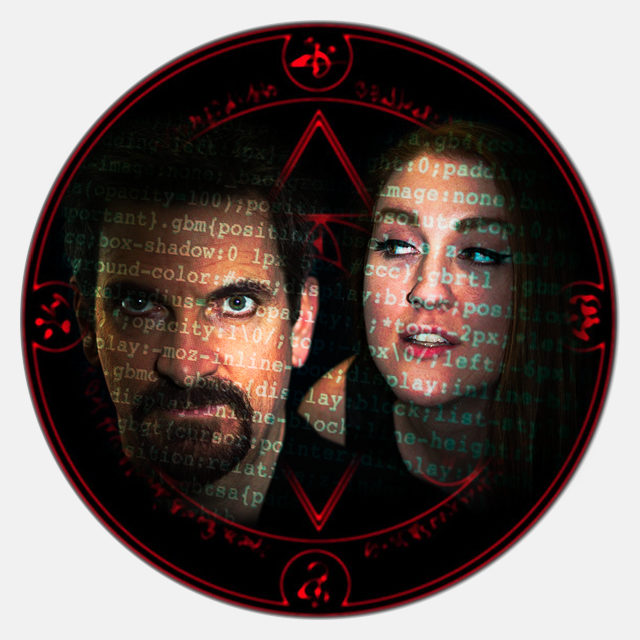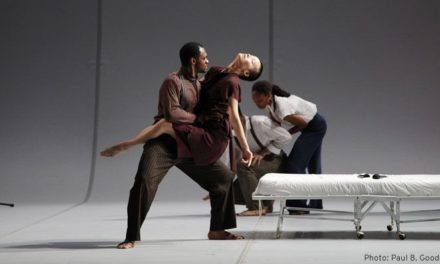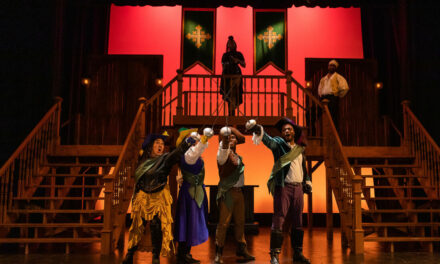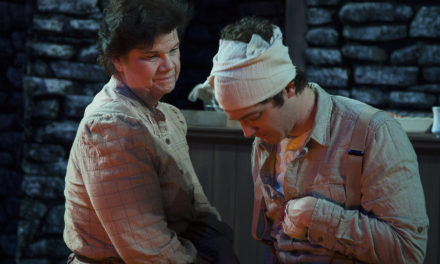Fables warning against the dangers of greed and temptation are nearly as old as humanity itself; yet there’s perhaps no story better known that relays this lesson than Christopher Marlowe’s 1592 play The Tragical History Of The Life And Death Of Doctor Faustus. Plan B Productions’ #Faustus, directed by Graham Price, is an ambitious attempt to make this story more readily applicable to the present day, in that the powers given to the title character by Lucifer allow him to wreak havoc primarily through the dark web (the criminal underground of the internet, for those unaware). As an adaptation of a 400-year old plus play, #Faustus is fairly successful.
One of its more unique choices is casting a woman in the role of Mephistopheles (Steph Goodwin), who acts as an intermediary between Faustus and Lucifer. Goodwin portrays this character in a manner that is menacing yet elegantly evil at the same time, establishing a personage who is well a capable adversary for Faustus (portrayed by William Beddoe). Her dynamic onstage with Beddoe is fascinating to watch precisely because of this. Beddoe himself is a strong performer in the role of Faustus, but his character only truly comes into his own when he’s at his lowest moment. The moment when Faustus realizes the full gravity of what he’s done is a truly agonizing one, as his turmoil is vividly expressed by Beddoe.
Another innovative feature of this production is the use of three projection screens to technologically complement the plot and give it a modern touch. Particularly apt uses of it are when Faustus and his friends hold counsel through FaceTime and when trashy images of contemporary culture are displayed before the protagonist by Lucifer as examples of the seven deadly sins. The video designer for the production, Andrew Alexander, definitely deserves credit on this front.
The only element which feels a bit out of place in this adaptation is the retention of the original Elizabethan-era dialogue. While it’s laudable of the show to want to keep something of Marlowe’s play, I couldn’t help but feel that including contemporary speech would give its subject matter more immediacy for the audience. Aside from this, however, it’s nice to see a show that is still willing to tackle as abstract and complex a subject as evil in our current moment as #Faustus is.
This article originally appeared in Capital Critics’ Circle on June 20, 2018, and has been reposted with permission.
This post was written by the author in their personal capacity.The opinions expressed in this article are the author’s own and do not reflect the view of The Theatre Times, their staff or collaborators.
This post was written by Natasha Lomonossoff.
The views expressed here belong to the author and do not necessarily reflect our views and opinions.


















